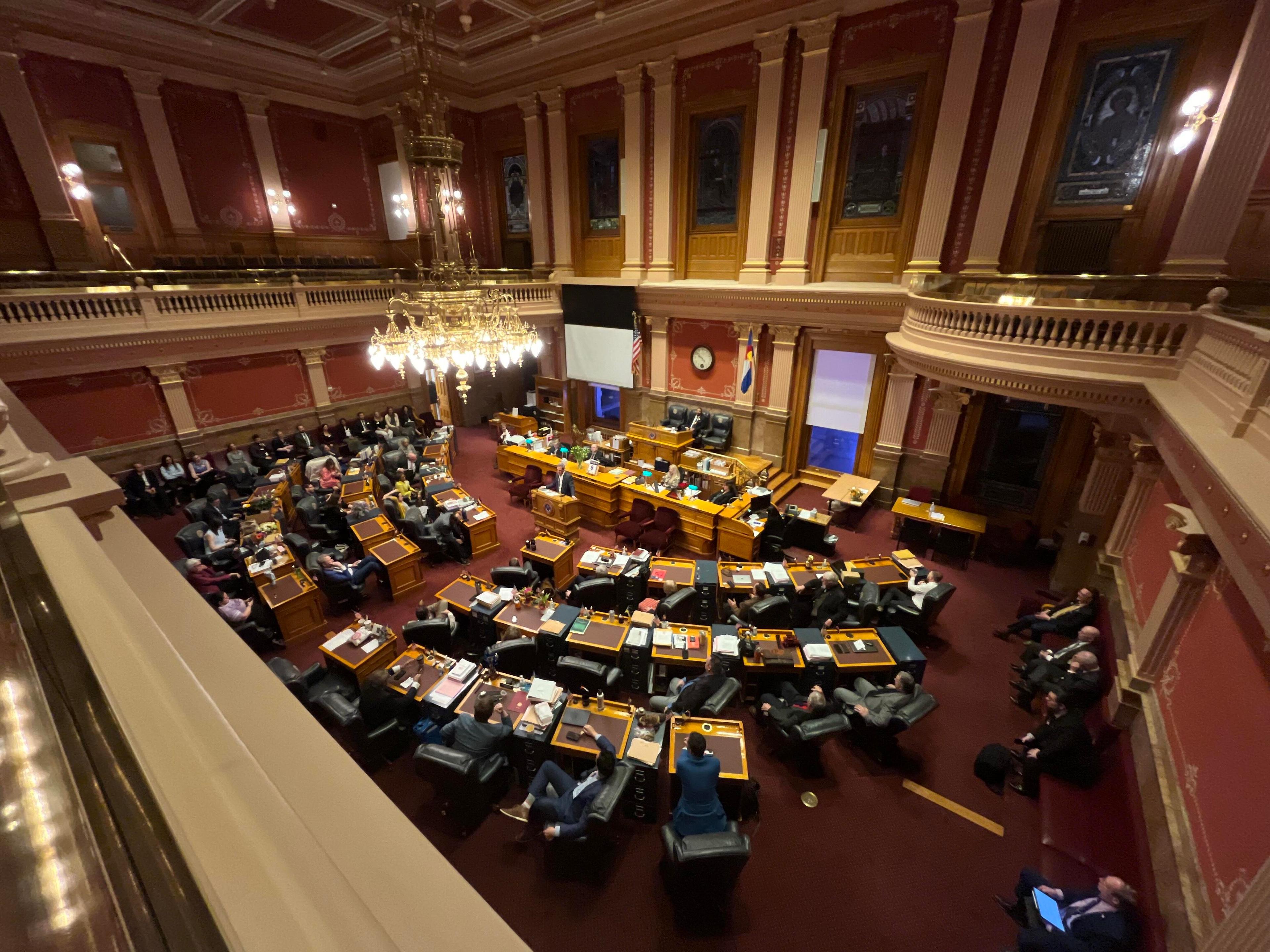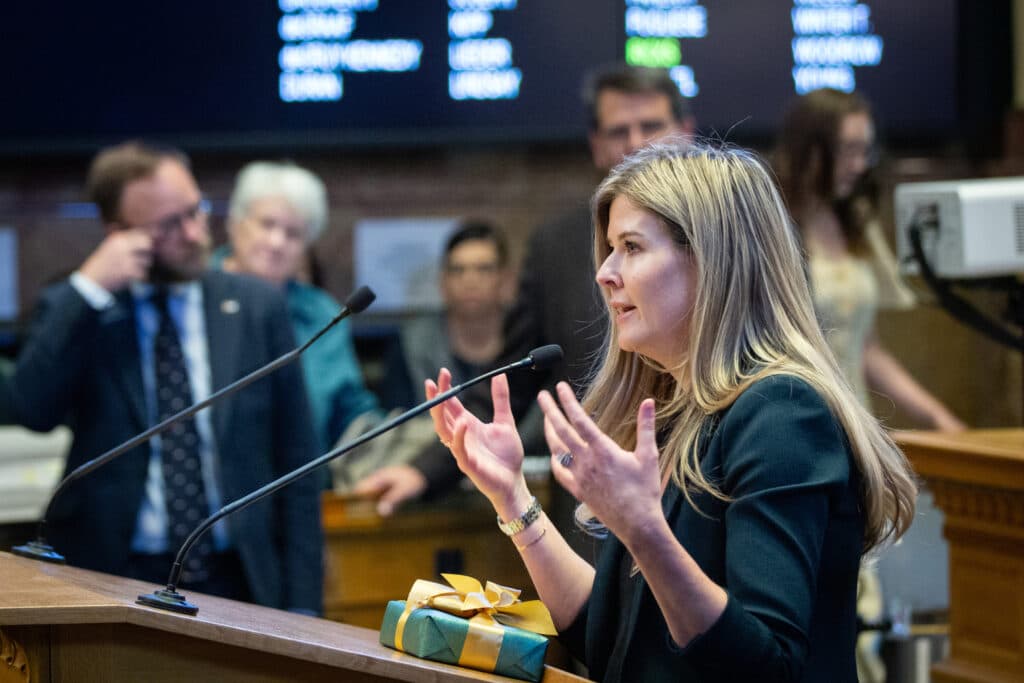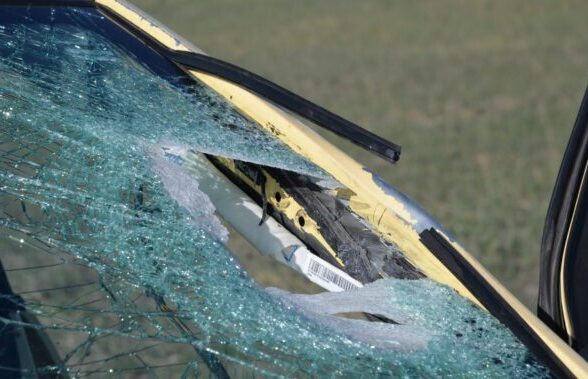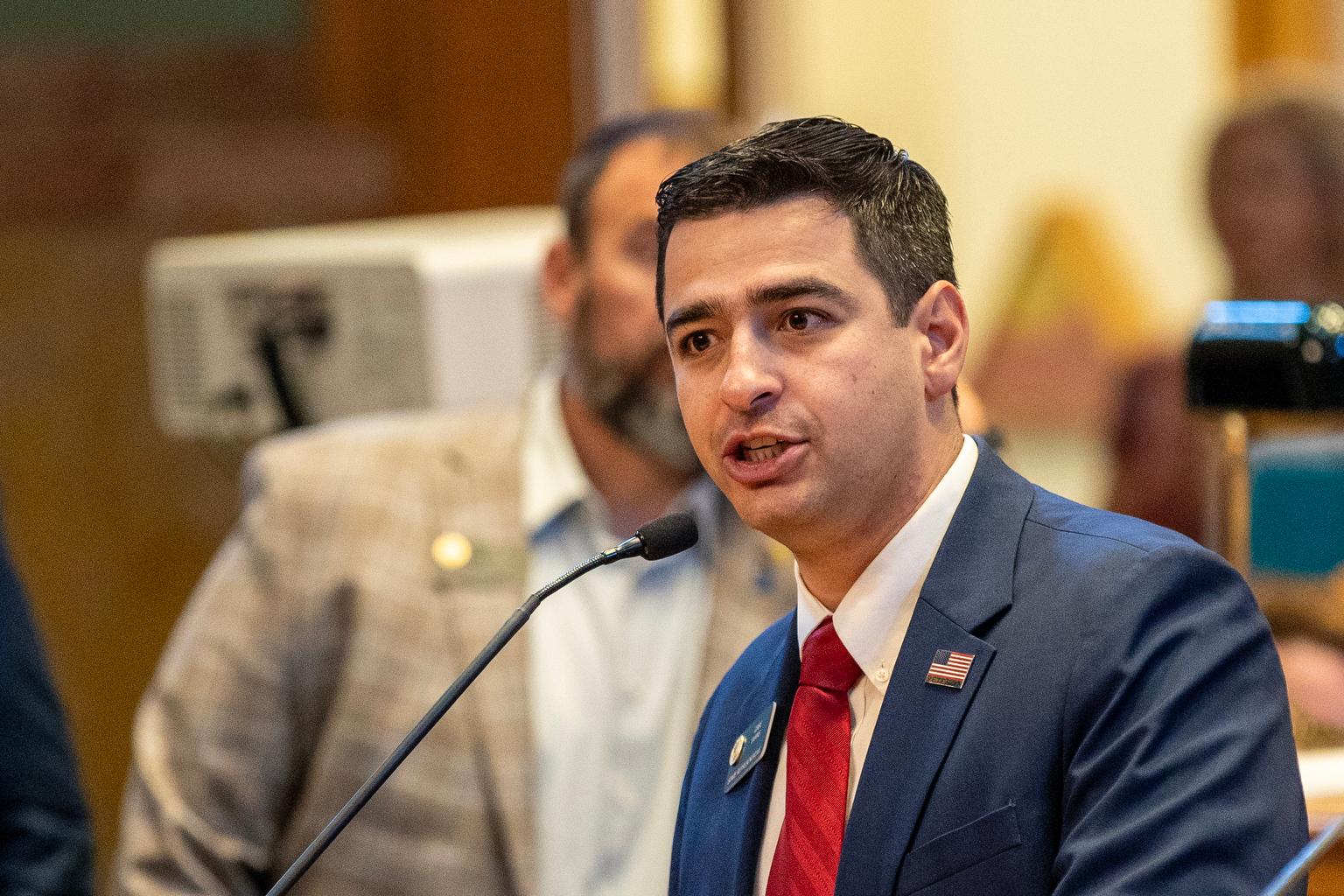
The Colorado Senate voted Friday to override a veto issued by Gov. Jared Polis a day before on a bipartisan bill regulating social media sites operating in Colorado with an eye toward protecting children.
The vote was 29-6, and passed with no debate, just brief comments from the two main sponsors. Backers of the bill needed the support of two-thirds of the Senate to override the veto.
“I think it’s time that we dig deep and find the courage that is within all of us and the conviction that is within all of us to protect the children within the state of Colorado,” Sen. Lisa Frizell, a Castle Rock Republican and one of the bill’s main sponsors, said before the vote was taken.
The measure, Senate Bill 86, now heads to the House, where it also needs two-thirds support to complete the veto override. The House could take up the override vote as early as Friday, too.
The bill originally passed the Senate by a 29-6 vote, the same margin by which the veto override passed. The bill passed the House 46-18, indicating if the split holds, the veto will be overridden.
The override vote represents an extremely rare rebuke of Polis by the legislature, and highlights differences among top party officials.
The last veto overrides in Colorado were in 2011 and 2007 under former Democratic Gov. Bill Ritter, and both dealt with budget spending requests.
Senate Bill 86 would require large social media companies used by people in Colorado to take down flagged accounts if they’re determined to be selling guns or drugs, or if the accounts are engaged in the sex trafficking or sexual exploitation of minors.
Companies would also have to set up staffed hotlines for communicating with law enforcement and respond to investigation requests within 72 hours.
The bill would require social media companies to publish annual reports on how many minors use their platforms, how often and for how long, and how much they interact with content that violates the company’s policies. That provision in particular raised red flags for the tech industry, which warned such reports would be full of proprietary information and could potentially be used by predators to better target underage users.
“This bill gives us the tools to help remove predators and traffickers from using social media to harm our kids,” said Democratic Sen. Lindsey Daugherty of Arvada, one of the main sponsors. “This is not about censorship, it's not about speech. It's about standing up for the safety and dignity of our youngest and most vulnerable.”

In a letter Thursday explaining his veto, Polis, a Democrat, wrote that while it has good intentions, it fails to guarantee the safety of minors or adults. He said it “erodes privacy, freedom and innovation; hurts vulnerable people; and potentially subjects all Coloradans to stifling and unwarranted scrutiny of our constitutionally protected speech.”
He also said it mandates a private company to investigate and impose the government’s chosen penalty of permanently deplatforming a user, “even if the underlying complaint is malicious and unwarranted.”
“In our judicial proceedings, people receive due process when they are suspected of breaking the law,” he wrote. “This bill, however, conscripts social media platforms to be judge and jury when users may have broken the law or even a company’s own content rules.”
Polis said he was also concerned about the data reporting requirements in the measure and that sensitive information such as users’ age, identity and the content they view could leak, especially harming marginalized communities.
The governor's office didn't immediately respond Friday to a request for comment on the Senate override vote.
Earlier in the day Friday, Democratic Attorney General Phil Weiser, who supports the bill, sent a legal memo to the legislature providing his analysis on why he thinks it’s on safe ground with the First Amendment.
This is a developing story that will be updated.
This story was produced by the Capitol News Alliance, a collaboration between KUNC News, Colorado Public Radio, Rocky Mountain PBS and The Colorado Sun, and shared with Rocky Mountain Community Radio and other news organizations across the state. Funding for the Alliance is provided in part by the Corporation for Public Broadcasting.









